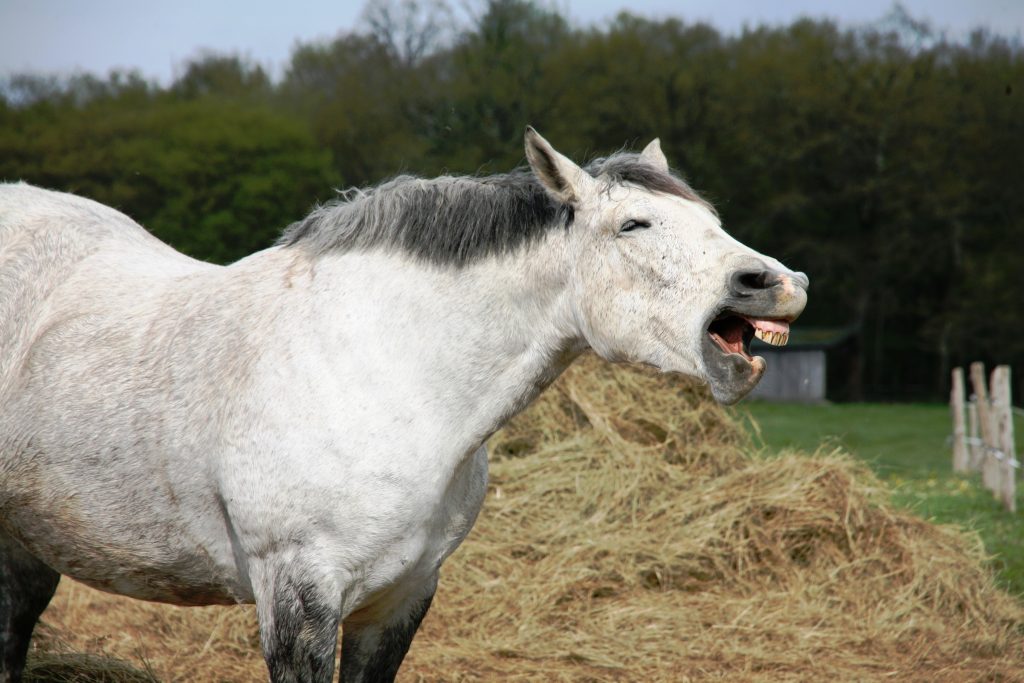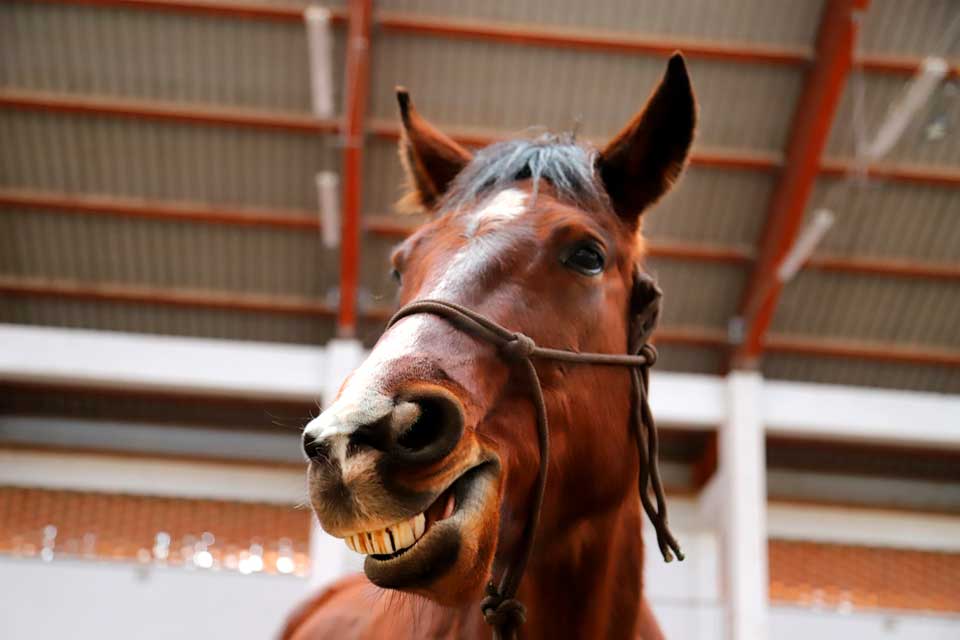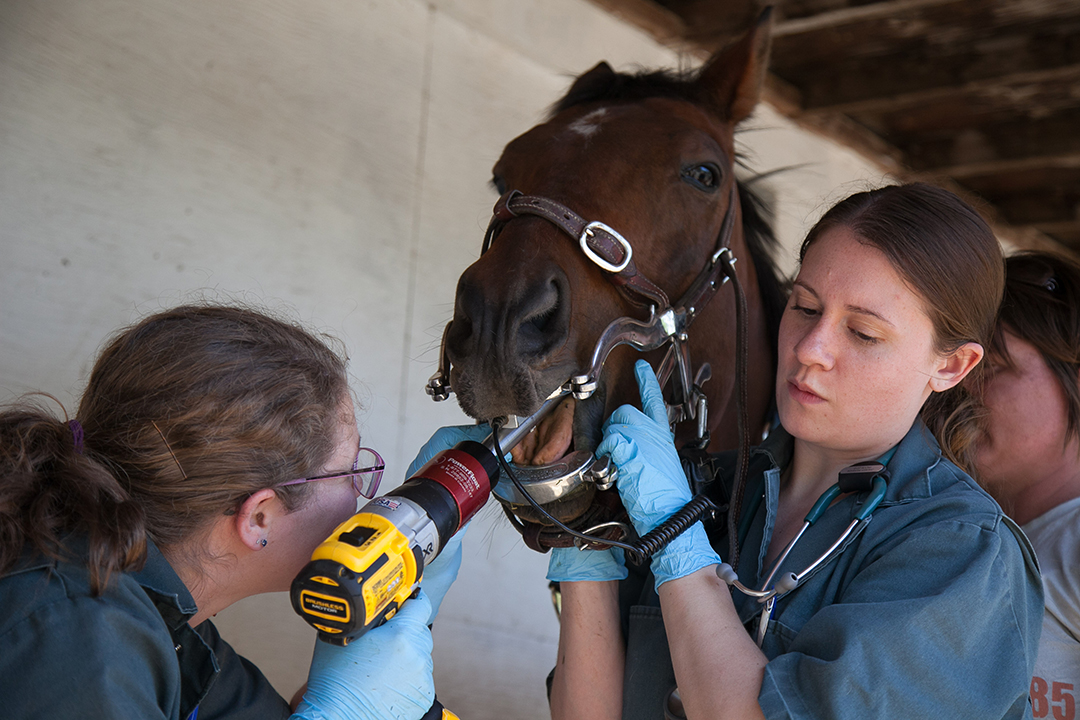As an equestrian enthusiast, understanding the importance of floating a horse’s teeth is crucial for maintaining your horse’s health and comfort. This procedure is vital for ensuring your horse can chew effectively and live comfortably, avoiding potential health issues that could arise from dental neglect. In the paragraphs that follow, we will explore what floating a horse’s teeth entails, why it is necessary, and how it contributes to the overall well-being of your equine companion.

What Does Floating a Horse’s Teeth Mean?
The term ‘floating a horse’s teeth‘ might sound unusual, but it refers to the process of filing down the sharp edges and points that develop on a horse’s teeth over time. Horses have hypsodont teeth, which means they continually grow throughout their lives. As they chew, these teeth can wear unevenly, leading to sharp edges that can cause pain and discomfort.
Why is Floating Necessary?
Without regular floating, horses might experience difficulty in chewing their food properly, leading to issues such as weight loss, colic, or even behavioral problems due to discomfort. By maintaining a smooth and even surface on the teeth, horses can grind their food efficiently, promoting better digestion and overall health.
Avoiding Dental Issues
Regular dental care, including floating, can help prevent severe dental problems like oral ulcers, abscesses, and periodontal disease. For more on how dental issues can affect your horse, visit this guide on horse oral tumors.
How Often Should a Horse’s Teeth Be Floated?
The frequency of dental floating can vary depending on several factors, including the horse’s age, diet, and dental history. Typically, horses should have their teeth checked at least once a year. However, younger horses, who may have softer and more rapidly changing teeth, might require more frequent evaluations.
Monitoring Dental Health
Regular dental exams are crucial. A comprehensive dental exam can help determine the appropriate schedule for floating.
The Procedure: What to Expect
Floating is performed by a veterinarian or an equine dental technician. The procedure involves the use of specialized tools to file down the sharp points. Sedation is often used to keep the horse calm and allow for a thorough examination and treatment.
Tools of the Trade
The tools used in floating a horse’s teeth have evolved over time. Modern equipment includes power floats and manual rasps, each designed to safely and effectively smooth the teeth.
Signs Your Horse May Need Floating
While annual check-ups are recommended, certain signs can indicate a need for more immediate dental attention. These signs include difficulty eating, dropping food, excessive drooling, and weight loss.
Behavioral Changes
Sometimes, behavioral changes such as head tossing or resistance to the bit can also signal dental discomfort. For a detailed checklist on monitoring these signs, refer to this mouth exam checklist.
Post-Procedure Care
After the procedure, it’s important to monitor your horse for any signs of discomfort or complications. Most horses recover quickly, but ensuring they have access to soft food and water can aid in a smooth recovery.
Long-term Health Benefits
Regular floating contributes significantly to your horse’s quality of life. It prevents dental issues and supports overall health. For more tips on post-dental care, check out this post-surgery care guide.
The Role of Diet in Dental Health
Diet plays an important role in maintaining your horse’s dental health. A balanced diet can help reduce the need for frequent floating, as it promotes natural tooth wear and reduces the formation of sharp edges.
Feeding Strategies
Incorporating a variety of forages and grains can help maintain a healthy dental structure. For more on how diet affects dental aging, visit this dental aging guide.
Consulting a Professional
Always consult with a qualified veterinarian or equine dental technician for any concerns about your horse’s dental health. They can provide personalized advice and treatment plans tailored to your horse’s specific needs.
Finding the Right Professional
Choosing an experienced professional is key. Look for recommendations from other horse owners or consult your veterinarian for trusted referrals.
Common Myths About Horse Dental Care
Several misconceptions surround the topic of floating a horse’s teeth. It’s important to separate fact from fiction to ensure your horse receives the best possible care.
Debunking Myths
One common myth is that all horses need the same dental care schedule. However, each horse is unique, and their dental care should be tailored accordingly.
Conclusion
Understanding the importance of floating a horse’s teeth is essential for every horse owner. It ensures your horse remains healthy, comfortable, and able to enjoy a high quality of life. By keeping up with regular dental care, you can prevent potential health issues and ensure your equine friend thrives.

FAQ Section
What is floating a horse’s teeth?
Floating is the process of filing down the sharp points that develop on a horse’s teeth to prevent discomfort and aid in proper chewing.
How often should I float my horse’s teeth?
Most horses should have their teeth checked annually, but some may require more frequent care depending on their individual needs.
Can floating benefit older horses?
Yes, floating is beneficial for horses of all ages as it helps maintain dental health and prevent issues that could arise from uneven wear.
This article contains affiliate links. We may earn a commission at no extra cost to you.
